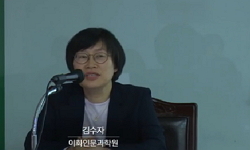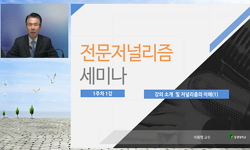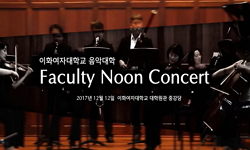In this study, I explored the features of news organizations related to journalists’ autonomy, burnout, and misinformation. People try to protect and acquire resources valuable to themselves physically and psychologically, thus in situations when th...
http://chineseinput.net/에서 pinyin(병음)방식으로 중국어를 변환할 수 있습니다.
변환된 중국어를 복사하여 사용하시면 됩니다.
- 中文 을 입력하시려면 zhongwen을 입력하시고 space를누르시면됩니다.
- 北京 을 입력하시려면 beijing을 입력하시고 space를 누르시면 됩니다.
https://www.riss.kr/link?id=A107970410
- 저자
- 발행기관
- 학술지명
- 권호사항
-
발행연도
2021
-
작성언어
Korean
-
주제어
Journalists ; Autonomy ; Burnout ; Misinformation ; Job Demands-Resources Model ; 기자 ; 직무 요구-자원 모형 ; 자율성 ; 소진 ; 오보
-
KDC
070
-
등재정보
KCI우수등재
-
자료형태
학술저널
- 발행기관 URL
-
수록면
47-87(41쪽)
-
KCI 피인용횟수
0
- DOI식별코드
- 제공처
-
0
상세조회 -
0
다운로드
부가정보
다국어 초록 (Multilingual Abstract)
In this study, I explored the features of news organizations related to journalists’ autonomy, burnout, and misinformation. People try to protect and acquire resources valuable to themselves physically and psychologically, thus in situations when they are losing or about to lose the resources, stress or burnout is likely to occur. Based on the conservation of resources theory and the job demands-resources model, four types of organizational characteristics that may influence journalists’ autonomy and burnout were considered: workload, ads-PR-sales work, ideological differences between journalists and news organizations, and the degree to which the news organization performs journalistic roles. I assumed that, for journalists, excessive workload, pressure on promotional work, and the organization’s ideology are job-demands factors or stressors, but that pride in the social roles of their news organization is a valuable resource. Thus, I hypothesized that the job-demands would reduce journalists’ autonomy and increase their burnout. In addition, how the four organizational factors along with autonomy and burnout are related to journalists’ misinformation was investigated. Using secondary data from journalists (N = 1,956) provided by the Korea Press Foundation, a series of regression analyses were conducted. As expected, the higher the work hours (workload) or the ads-PR-sales work, the lower the journalists’ job autonomy. Also, journalistic role perception increased autonomy, but ideological differences were not related to autonomy. Regarding burnout, as reliability and factor analyses indicated, the three components (emotional exhaustion, cynicism, and reduced efficacy) of burnout were separately analyzed. Work hours significantly increased emotional exhaustion and cynicism, as expected, while interestingly, those who worked more time tended to report higher efficacy in their work. Ads-PR-sales work consistently increased the three factors of burnout. Ideological differences were positively related to emotional exhaustion but neither to cynicism or reduced efficacy. The perception of organization’s journalistic roles was negatively related to cynicism and reduced efficacy but not related to emotional exhaustion. Journalists’ job autonomy was negatively related to the three symptoms of burnout, taking the four organizational features into account. Also, autonomy moderated the relationships between ideological differences and cynicism and between journalistic role perception and reduced efficacy. Finally, those journalists who admitted that they had made incorrect reports within the year tended to work more, including ads-PR-sales work, perceive journalistic roles poorly, and suffer from the reduction of efficacy. With these factors considered, autonomy increased the odds ratio of having incorrect reports. This study showed the consistent negative impact of ads-PR-sales work, while the possibility of pride in organization as valuable workplace resource for journalists. These results generally support the job demands-resources model and the conservation of resources theory and provide implications for journalism studies and practice.
참고문헌 (Reference)
1 조항제, "한국의 민주화와 언론 1987∼2017" 사단법인 언론과 사회 25 (25): 11-78, 2017
2 김수영, "한국 공영 방송 언론인의 직업 정체성에 관한 연구: KBS 언론인의 ‘기능 직업인’적 속성을 중심으로" 한국언론학회 61 (61): 55-86, 2017
3 박홍원, "편집권 독립과 언론의 자유" 한국지역언론학회 11 (11): 123-156, 2011
4 함승경, "코로나19 언론보도 경향에 대한 빅데이터 분석이슈 주기 및 언론사 정치적 지향에 따른 주제 분석과 언어 네트워크 분석 적용" 한국언론학회 65 (65): 148-189, 2021
5 백강희, "취재보도 원칙과 정치성향에 대한 인식 차이가 기자의 심리적 탈진에 미치는 영향" 한국콘텐츠학회 19 (19): 24-32, 2019
6 이랑, "직무탈진과 직무열의의 요구-자원 모델에서 정서노동전략의 역할 - 콜센터 상담원을 대상으로 -" 한국산업및조직심리학회 19 (19): 573-596, 2006
7 박재춘, "직무자원은 직무소진에 대한 직무요구의 부정적인 효과를 완화시키는가? - 업무 후 모바일기기 사용, 조직정치지각 및 상사 지원의 3차항 조절효과 -" 한국인적자원관리학회 25 (25): 19-39, 2018
8 전오열, "지역 언론인의 심리적 탈진에 관한 연구: 전북기자협회 회원의 인구사회학적 속성, 직무 스트레스, 직업 환경 요인을 중심으로" 한국지역언론학회 16 (16): 263-306, 2016
9 이충재, "종합일간지 편집국장의 편집권에 대한 인식 연구: 10개 일간지 전ㆍ현 편집국장을 대상으로" 한국언론학회 59 (59): 165-186, 2015
10 박준기, "조직 자부심의 형성 유형 - 비전, 성과, 전문성 그리고 가치 -" 경영연구소 35 (35): 79-104, 2017
1 조항제, "한국의 민주화와 언론 1987∼2017" 사단법인 언론과 사회 25 (25): 11-78, 2017
2 김수영, "한국 공영 방송 언론인의 직업 정체성에 관한 연구: KBS 언론인의 ‘기능 직업인’적 속성을 중심으로" 한국언론학회 61 (61): 55-86, 2017
3 박홍원, "편집권 독립과 언론의 자유" 한국지역언론학회 11 (11): 123-156, 2011
4 함승경, "코로나19 언론보도 경향에 대한 빅데이터 분석이슈 주기 및 언론사 정치적 지향에 따른 주제 분석과 언어 네트워크 분석 적용" 한국언론학회 65 (65): 148-189, 2021
5 백강희, "취재보도 원칙과 정치성향에 대한 인식 차이가 기자의 심리적 탈진에 미치는 영향" 한국콘텐츠학회 19 (19): 24-32, 2019
6 이랑, "직무탈진과 직무열의의 요구-자원 모델에서 정서노동전략의 역할 - 콜센터 상담원을 대상으로 -" 한국산업및조직심리학회 19 (19): 573-596, 2006
7 박재춘, "직무자원은 직무소진에 대한 직무요구의 부정적인 효과를 완화시키는가? - 업무 후 모바일기기 사용, 조직정치지각 및 상사 지원의 3차항 조절효과 -" 한국인적자원관리학회 25 (25): 19-39, 2018
8 전오열, "지역 언론인의 심리적 탈진에 관한 연구: 전북기자협회 회원의 인구사회학적 속성, 직무 스트레스, 직업 환경 요인을 중심으로" 한국지역언론학회 16 (16): 263-306, 2016
9 이충재, "종합일간지 편집국장의 편집권에 대한 인식 연구: 10개 일간지 전ㆍ현 편집국장을 대상으로" 한국언론학회 59 (59): 165-186, 2015
10 박준기, "조직 자부심의 형성 유형 - 비전, 성과, 전문성 그리고 가치 -" 경영연구소 35 (35): 79-104, 2017
11 김원형, "정서노동과 직무탈진:자율성과 사회적 지지의 조절효과" 한국건강심리학회 12 (12): 905-921, 2007
12 정승호, "인터넷 취재로 인한 언론인의 취재활동 및 노동여건, 언론사내 조직위상의 변화 : 전국지 지역기자와 지역신문 기자 비교 분석" 언론정보연구소 43 (43): 37-70, 2007
13 박지영, "인공지능의 유능함에 대한 인식이 직장인의 직무불안정성과 냉소주의에 미치는 영향: 일의 의미의 조절된 매개효과" 한국산업및조직심리학회 33 (33): 145-175, 2020
14 박영흠, "의례로서의 저널리즘: 한국 저널리즘의 정파성에 대한 새로운 이해" 한국언론학회 60 (60): 202-228, 2016
15 신혜선, "오보 문제에 대한 기자 인식 : 심층 인터뷰를 중심으로" 한국언론학회 65 (65): 239-272, 2021
16 송병권, "여론조사 보도에서 나타난 언론매체의 정치적 편향: 제19대 대통령 선거를 중심으로" 한국정당학회 18 (18): 69-94, 2019
17 조재희, "언론인의 이직 의도 결정요인 분석직무만족도와 직무피로도의 매개 효과를 중심으로" 한국언론학회 63 (63): 83-119, 2019
18 박진우, "언론인의 양심 보호 조항을 통한편집권 독립 및 내적 언론자유의 재검토: 프랑스의 법제와 판례 연구" 한국언론학회 10 (10): 404-442, 2014
19 이상기, "언론의 상업주의화에 대한 비판적 고찰" 한국언론정보학회 56 (56): 26-47, 2011
20 황비웅, "언론사 조직 문화의 특성과 관행이 기자 직무수행에 미치는 영향에 대한 내러티브 연구" 한국기업교육학회 22 (22): 61-88, 2020
21 안차수, "언론노동자의 스트레스와 정서적 고갈에 관한 연구 -일간 신문 산업 종사자들의 노동 환경을 중심으로" 부산울산경남언론학회 24 (24): 62-91, 2020
22 정재민, "신문사 종사자의 탈진에 대한 연구: 편집국과 비편집국 종사자의 비교를 중심으로" 한국언론학회 55 (55): 252-276, 2011
23 이용재, "사회적 기업에서 비전공유와 가치일치가 근로자의 조직시민행동에 미치는 영향" 한국콘텐츠학회 12 (12): 206-213, 2012
24 김동률, "방송사 기자들의 심리적 탈진에 관한 연구 - KBS, MBC, SBS등 지상파 3사 취재기자를 대상으로" 한국방송학회 23 (23): 7-49, 2009
25 김세은, "미투 운동(#Metoo) 보도를 통해 본 한국 저널리즘 관행과 언론사 조직 문화: 여성기자 심층 인터뷰를 중심으로" 한국여성커뮤니케이션학회 34 (34): 39-88, 2019
26 이강형, "디지털 저널리즘 현실에 대한 한국 기자들의 수용 태도: 저널리즘 원칙과 윤리의식 변화를 중심으로" 한국언론정보학회 93 : 7-38, 2019
27 임봉수, "뉴스와 광고의 은밀한 동거: 광고주에 대한 언론의 뉴스구성" 한국언론정보학회 66 (66): 133-158, 2014
28 김석, "기업사회공헌이 조직몰입에 기여하는가?" 한국기업경영학회 20 (20): 99-118, 2013
29 김현정, "근로시간이 공무원의 삶의 만족도에 미치는 영향에 관한 연구: 업무자율성의 조절효과를 중심으로" 한국행정연구소 56 (56): 249-278, 2018
30 배정근, "국내 종합일간지와 대기업 광고주의 의존관계 형성과 변화과정: 자원의존이론의 관점에서" 한국언론학회 56 (56): 265-292, 2012
31 유태용, "개인과 조직성격간 부합, 개인과 직무특성간 부합이 조직과 직무에 대한 태도 및 행동에 미치는 영향" 한국산업및조직심리학회 16 (16): 201-222, 2003
32 한광현, "개인-집단주의 가치성향이 직무요구-자원과 직무소진 과정에 미치는 영향" 한국경영교육학회 (63) : 287-310, 2010
33 백강희, "가톨릭 언론사의 종교적 신념, 취재원 관행, 기자의 개인적 신념 간 갈등에 대한 검토" 언론정보연구소 56 (56): 5-46, 2019
34 서상현, "가차 저널리즘의 뉴스결정 과정에 대한 탐색: 정치부 기자의 심층 인터뷰 분석을 중심으로" 한국지역언론학회 15 (15): 245-284, 2015
35 김동률, "가차 저널리즘(gotha journalism), 탐색적 연구 - 노무현정부 출범이후 정치보도를 중심으로" 한국언론정보학회 29 : 43-71, 2005
36 Shirom, A., "Work hours and caseload as predictors of physician burnout:The mediating effects by perceived workload and by autonomy" 59 (59): 539-565, 2010
37 Xanthopoulou, D., "When do job demands particularly predict burnout? The moderating role of job resources" 22 (22): 766-786, 2007
38 Kim, S. -E., "What to do after the strife" 39 : 18-21, 2017
39 Naus, F., "Value incongruence, job autonomy, and organization-based self-esteem: A self-based perspective on organizational cynicism" 16 (16): 195-219, 2007
40 Bakker, A. B., "Using the job demands-resources model to predict burnout and performance" 43 (43): 83-104, 2004
41 Morgeson, F. P., "The work design questionnaire (WDQ): Developing and validating a comprehensive measure for assessing job design and the nature of work" 91 (91): 1321-1339, 2006
42 Pickard, V., "The violence of the market" 20 (20): 154-158, 2019
43 Eisinga, R., "The reliability of a two-item scale: Pearson, Cronbach, or Spearman-Brown?" 58 (58): 637-642, 2013
44 Hanusch, F., "The power of commercial influences: How lifestyle journalists experience pressure from advertising and public relations" 14 (14): 1029-1046, 2020
45 Bakker, A. B., "The job demands‐resources model: State of the art" 22 (22): 309-328, 2007
46 Hakanen, J. J., "The job demands-resources model: A three-year cross-lagged study of burnout, depression, commitment, and work engagement" 22 (22): 224-241, 2008
47 Demerouti, E., "The job demands-resources model of burnout" 86 (86): 499-512, 2001
48 Hobfoll, S. E., "The influence of culture, community, and the nested‐self in the stress process:Advancing conservation of resources theory" 50 (50): 337-421, 2001
49 McManus, "The handbook of journalism studies" Routledge 238-254, 2009
50 Son, Y. J., "The global journalist in the 21st century" Routledge 66-77, 2012
51 Cook, B. B., "The effects of work environment on burnout in the newsroom" 14 (14): 123-136, 1993
52 Lu, J. G., "The dark side of experiencing job autonomy: Unethical behavior" 73 : 222-234, 2017
53 CareerCast.com, "The Worst Jobs of 2017"
54 Hobfoll, S. E., "The Oxford handbook of stress, health, and coping" Oxford University Press 127-147, 2011
55 Brotheridge, C. M., "Testing a conservation of resources model of the dynamics of emotional labor" 7 : 57-67, 2002
56 Ryan, R. M., "Self-determination theory and the facilitation of intrinsic motivation, social development, and well-being" 55 (55): 68-78, 2000
57 Jawahar, I. M., "Role conflict and burnout : The direct and moderating effects of political skill and perceived organizational support on burnout dimensions" 14 (14): 142-159, 2007
58 Newman, N., "Reuters institute digital news report 2021"
59 Leiter, M. P., "Research Companion to organizational health psychology" Edward Elgar 544-564, 2005
60 Lazarus, R. S., "Psychological stress and the coping process" McGraw-Hill 1966
61 Maslach, C., "Prevention of burnout : New perspectives" 7 (7): 63-74, 1998
62 Koch, T., "Powered by public relations? Mutual perceptions of PR practitioners’ bases of power over journalism" 21 (21): 1573-1589, 2020
63 유선욱, "PR실무자의 직무열의와 직무소진에 대한 연구 : 직무요구-자원 모델을 적용하여" 한국언론학회 57 (57): 335-363, 2013
64 Cohen E. L., "Online journalism as market-driven journalism" 46 (46): 532-548, 2002
65 Reinardy, S., "Newspaper journalism in crisis: Burnout on the rise, eroding young journalists’ career commitment" 12 (12): 33-50, 2011
66 Baum, M. A., "New media and the polarization of American political discourse" 25 (25): 345-365, 2008
67 Hackman, J. R., "Motivation through the design of work: Test of a theory" 16 (16): 250-279, 1976
68 Bakker, A. B., "Job resources buffer the impact of job demands on burnout" 10 (10): 170-180, 2005
69 Schaufeli, W. B., "Job demands, job resources, and their relationship with burnout and engagement: A multi-sample study" 25 (25): 293-315, 2004
70 Toker, S., "Job burnout and depression: Unraveling their temporal relationship and considering the role of physical activity" 97 (97): 699-710, 2012
71 Maslach, C., "Job burnout" 52 (52): 397-422, 2001
72 Vela-Bueno, A., "Insomnia and sleep quality among primary care physicians with low and high burnout levels" 64 (64): 435-442, 2008
73 Eissa, G., "Individual initiative and burnout as antecedents of employee expediency and the moderating role of conscientiousness" 110 : 202-212, 2020
74 McDevitt, M., "In defense of autonomy: A critique of the public journalism critique" 53 (53): 155-160, 2003
75 Halbesleben, J. R., "I owe you one: Coworker reciprocity as a moderator of the day‐level exhaustion–performance relationship" 32 (32): 608-626, 2011
76 Shin, W., "Hating journalism: Anti-press discourse and negative emotions toward journalism in Korea" 22 (22): 1239-1255, 2021
77 Sunstein, C. R., "Going to extremes: How like minds unite and divide" Oxford University Press 2009
78 Halbesleben, J. R., "Getting to the “COR”understanding the role of resources in conservation of resources theory" 40 (40): 1334-1364, 2014
79 Tong, J., "From person-environment misfit to job burnout : Theoretical extensions" 30 (30): 169-182, 2015
80 Braun, J. A., "Fake news, real money : Ad tech platforms, profit-driven hoaxes, and the business of journalism" 7 (7): 1-21, 2019
81 Sa, E. S., "Factors influencing freedom of the press in South Korea: A survey of print journalists’opinions" 5 (5): 3-24, 2009
82 Westman, M., "Exploring interpersonal dynamics" Emerald Group Publishing 167-220, 2004
83 Plaisance, P. L., "Ethical orientations of journalists around the globe:Implications from a cross-national survey" 39 (39): 641-661, 2012
84 Langfred, C. W., "Effects of task autonomy on performance: An extended model considering motivational, informational, and structural mechanisms" 89 (89): 934-945, 2004
85 Rho, E., "Does organizational image matter? Image, identification, and employee behaviors in public and nonprofit organizations" 75 (75): 421-431, 2015
86 Han, J., "Digital Korea: digital technology and the change of social life" Hanul Academy 77-101, 2018
87 Reich, Z., "Determinants of journalists’ professional autonomy: Individual and national level factors matter more than organizational ones" 16 (16): 133-156, 2013
88 Andersson, L. M., "Cynicism in the workplace : Some causes and effects" 18 (18): 449-469, 1997
89 Hobfoll, S. E., "Conservation of resources: A new attempt at conceptualizing stress" 44 (44): 513-524, 1989
90 Hobfoll, S. E., "Conservation of resources in the organizational context: The reality of resources and their consequences" 5 : 103-128, 2018
91 Prins, J. T., "Burnout, engagement and resident physicians'self-reported errors" 14 (14): 654-666, 2009
92 Demerouti, E., "Burnout and work engagement: A thorough investigation of the independency of both constructs" 15 (15): 209-222, 2010
93 Kim, H., "Burnout and turnover intention among social workers: Effects of role stress, job autonomy and social support" 32 (32): 5-25, 2008
94 Coddington, "Boundaries of journalism: Professionalism, practices and participatio" Routledge 67-82, 2015
95 Lee, K. J., "Big affairs in 1994 and commercially competitive journalism" 14 : 23-29, 1994
96 Liu, H. L., "An integrated model of workload, autonomy, burnout, job satisfaction, and turnover intention among Taiwanese reporters" 28 (28): 153-169, 2018
97 Jo, S., "Advertising as payment: Information transactions in the South Korean newspaper market" 37 (37): 399-404, 2011
98 Lee, R. T., "A meta-analytic examination of the correlates of the three dimensions of job burnout" 81 (81): 123-133, 1996
동일학술지(권/호) 다른 논문
-
어린이 미디어 이용에 관한 부모 중재효과 연구 : 성향점수매칭을 활용한 복합설문분석
- 한국언론학회
- 박인서(Rinseo Park)
- 2021
- KCI우수등재
-
미세먼지 언론 보도 내용분석 : 충남지역 미세먼지 관련 전국지와 지역지 비교
- 한국언론학회
- 이현승(Hyunseung Lee)
- 2021
- KCI우수등재
-
광장 정치와 집회 유튜버의 활동 : 2019년 태극기 집회 참여관찰을 통해 본 유튜버의 역할과 정체성
- 한국언론학회
- 이종명(Jongmyung Lee)
- 2021
- KCI우수등재
-
메시지의 생생함과 권고 구체성이 확산과 설득에 미치는 영향
- 한국언론학회
- 김지수(Jisu Kim)
- 2021
- KCI우수등재
분석정보
인용정보 인용지수 설명보기
학술지 이력
| 연월일 | 이력구분 | 이력상세 | 등재구분 |
|---|---|---|---|
| 2022 | 평가예정 | 계속평가 신청대상 (등재유지) | |
| 2017-01-01 | 평가 | 우수등재학술지 선정 (계속평가) | |
| 2013-01-01 | 평가 | 등재학술지 유지 (등재유지) |  |
| 2010-01-01 | 평가 | 등재학술지 유지 (등재유지) |  |
| 2008-01-01 | 평가 | 등재학술지 유지 (등재유지) |  |
| 2006-01-01 | 평가 | 등재학술지 유지 (등재유지) |  |
| 2004-01-01 | 평가 | 등재학술지 유지 (등재유지) |  |
| 2001-07-01 | 평가 | 등재학술지 선정 (등재후보2차) |  |
| 1999-01-01 | 평가 | 등재후보학술지 선정 (신규평가) |  |
학술지 인용정보
| 기준연도 | WOS-KCI 통합IF(2년) | KCIF(2년) | KCIF(3년) |
|---|---|---|---|
| 2016 | 1.75 | 1.75 | 1.94 |
| KCIF(4년) | KCIF(5년) | 중심성지수(3년) | 즉시성지수 |
| 2.07 | 2.11 | 2.773 | 0.4 |





 DBpia
DBpia





